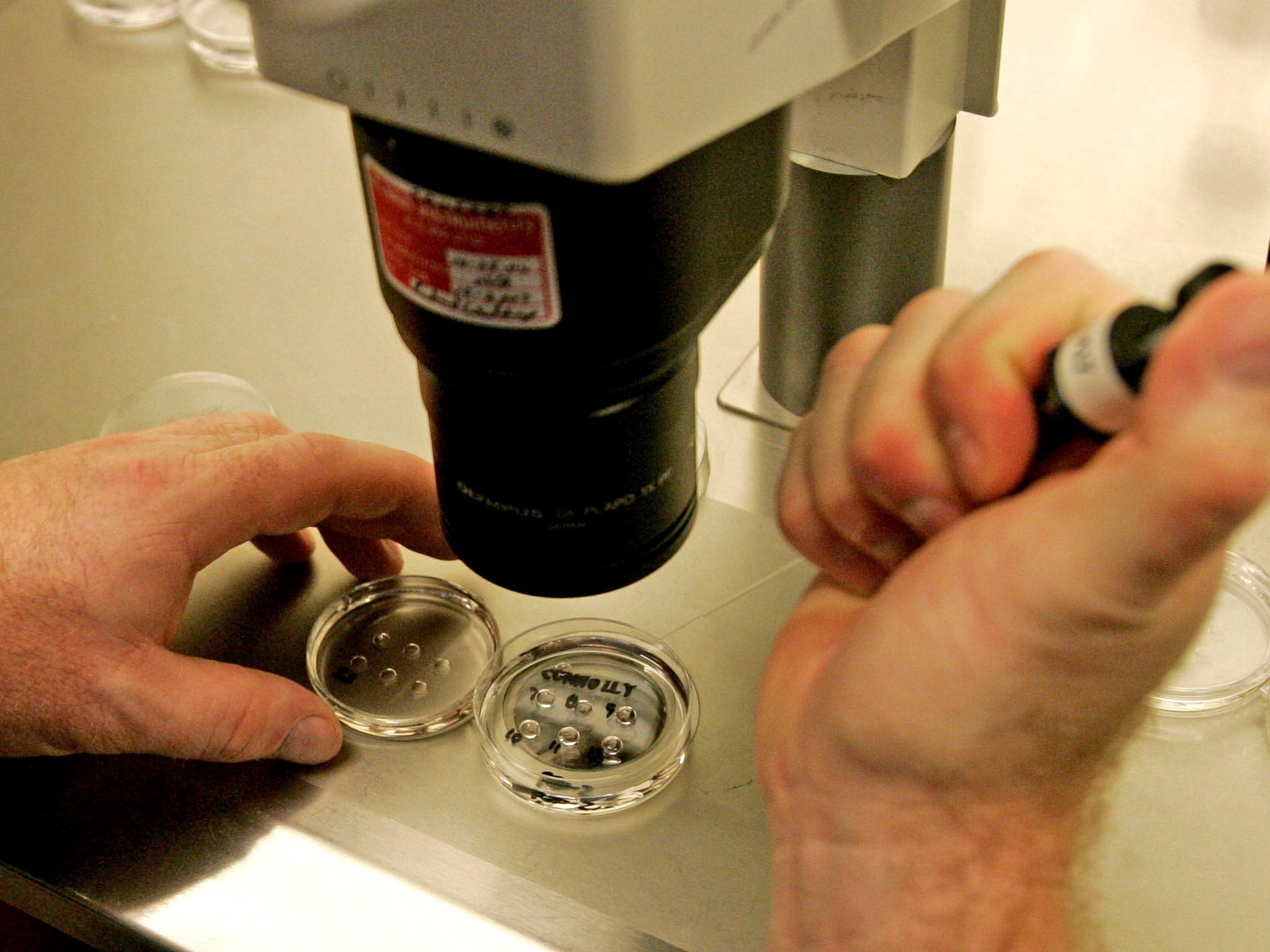Three-parent babies: Chief medical officer defends claim that three-person IVF is not genetic modification
Dame Sally Davies appears before MPs

Government science advisers have defended their decision to exclude a controversial “three-parent baby” technique from their working definition of genetic modification, and have denied that it was to avoid being accused of supporting the creation of genetically modified babies.
The Government has said it is about to change the law to allow doctors to create IVF embryos from three people as a result of combining the mitochondrial genes from a donor egg with the two sets of chromosomes of a fertilised egg – but has ruled that the technique does not amount to genetic modification.
Dame Sally Davies, the Government’s chief medical officer, said that it was her decision to come up with a working definition of genetic modification that did not include the transfer of mitochondrial genes from a donated egg as part of a new fertility technique to create IVF embryos that will be free of inherited mitochondrial diseases.
In oral evidence to the House of Commons science and technology committee, Dame Sally explained that she wanted to make a clear distinction between the 37 genes of the mitochondria – the energy "factories" of the cells – and the 23,000 or so genes held within the chromosomes of the cell’s nucleus.
“We needed to make a distinction between the nuclear DNA that make us what we are and how we are – our personality, height, weight or whether we will go bald – from the 37 genes in the mitochondria which are about energy for the cell or, as we describe, their ‘power packs’,” Dame Sally said.
People were using terms such as genetic modification in “mixed and odd ways” and it seemed important to lay down a working definition of genetic modification in order to bring some clarity and transparency to the discussions, although she accepted that the definition is “under review”, she told the select committee.
“It’s not because that is what it is, it’s because we can have a conversation and know what we’re talking about. We did it in order to clarify the discussion so everyone knows what we are discussing,” she said.
Dame Sally said that the Government has accepted that mitochondrial transfer, which will result in a change to the mitochondrial genes of all subsequent generations of the affected family, is “germline therapy”, but is not genetic modification because it does not involved a change to the genes of the chromosomes.
“The rationale is perfectly sensible and reasonable. I’m satisfied that is a reasonable definition for us to have a sensible debate,” Jane Ellison MP, the Public Health Minister, told the committee.
However, the decision to use a definition of genetic modification that specifically excludes mitochondrial transfer has been criticised by some experts, such as Lord Winston, a leading pioneer in fertility treatment, and Ted Morrow, a senior research scientist at Sussex University who clashed yesterday with other experts giving evidence to the select committee.
“If it’s germline modification how can it not be genetic modification?” Dr Morrow said to the committee.
Professor Robin Lovell-Badge of the National Institute for Medical Research, who sat on a panel of experts advising on mitochondrial transfer, defended the Government’s decision not to include mitochondrial transfer in the definition of genetic modification.
“You can call it germline modification. You are not changing the specific DNA sequences, which is how I, as an experimental biologist, would normally understand genetic modification,” Professor Lovell Badge said.
“It’s not like you are engineering specific DNA sequences. You are swapping the entire mitochondrial genome. I don’t see it as a form of genetic modification,” he said.
Professor Peter Baude, emeritus professor of obstetrics and gynaecology at King’s College, London, said: “You’re not modifying the genome of the mother and father, you're simply moving it into another bag.”
Join our commenting forum
Join thought-provoking conversations, follow other Independent readers and see their replies
Comments
Bookmark popover
Removed from bookmarks